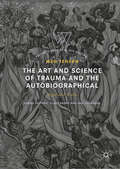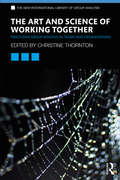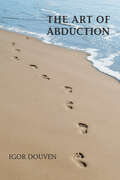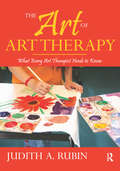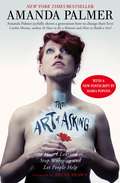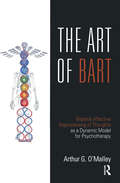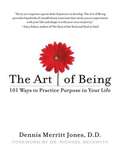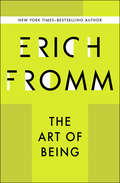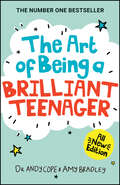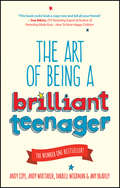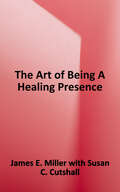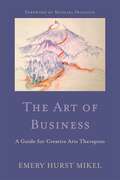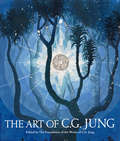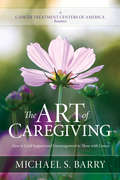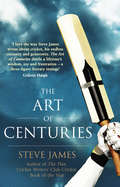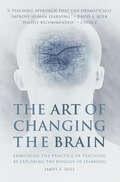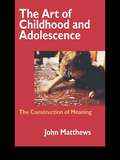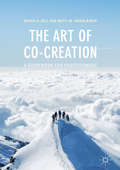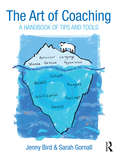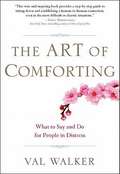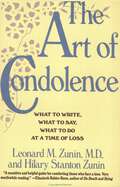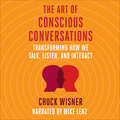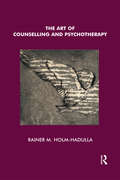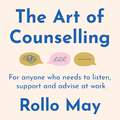- Table View
- List View
The Art and Science of Trauma and the Autobiographical: Negotiated Truths (Palgrave Studies in Life Writing)
by Meg JensenThis book examines posttraumatic autobiographical projects, elucidating the complex relationship between the ‘science of trauma’ (and how that idea is understood across various scientific disciplines), and the rhetorical strategies of fragmentation, dissociation, reticence and repetitive troping widely used the representation of traumatic experience. From autobiographical fictions to prison poems, from witness testimony to autography, and from testimonio to war memorials, otherwise dissimilar projects speak of past suffering through a limited and even predictable discourse in search of healing. Drawing on approaches from literary, human rights and cultural studies that highlight relations between trauma, language, meaning and self-hood, and the latest research on the science of trauma from the fields of clinical, behavioral and evolutionary psychology and neuroscience, I read such autobiographical projects not as ‘symptoms’ but as complex interrogative negotiations of trauma and its aftermath: commemorative and performative narratives navigating aesthetic, biological, cultural, linguistic and emotional pressure and inspiration.
The Art and Science of Working Together: Practising Group Analysis in Teams and Organisations (The New International Library of Group Analysis)
by Christine ThorntonThe Art and Science of Working Together: Practising Group Analysis in Teams and Organizations is a primary resource for anyone wishing to learn more about the complex unconscious dynamics of organizations, providing a practical guide for organizational work, a guide to how to improve things, and a strong theoretical foundation in the group analytic concept of the ‘tripartite matrix’. Group analysis is a highly developed science of group relationships, which allows complexity and systems perspectives to be held in mind alongside organizational psychology, strategic development and business wisdom. Organized into eight sections, the book describes the essence of organizational group analysis, including the art of conversation, leadership, ethical issues in team working, and working with whole organizations. It addresses issues such as ‘us-and-them’ dynamics, the nature of systems boundaries, and the relationship between an organization and its context. Leaders and leading consultants give case studies, describing their thinking as they work, to illustrate the theory in action. This essential new resource will allow clinically trained practitioners to extend their scope into organizational work, and all coaches and leaders to benefit from knowledge of the group analytic discipline. It is essential reading for consultants and coaches working with teams and organizations, and for leaders within organizations.
The Art of Abduction
by Igor DouvenA novel defense of abduction, one of the main forms of nondeductive reasoning.With this book, Igor Douven offers the first comprehensive defense of abduction, a form of nondeductive reasoning. Abductive reasoning, which is guided by explanatory considerations, has been under normative pressure since the advent of Bayesian approaches to rationality. Douven argues that, although it deviates from Bayesian tenets, abduction is nonetheless rational. Drawing on scientific results, in particular those from reasoning research, and using computer simulations, Douven addresses the main critiques of abduction. He shows that versions of abduction can perform better than the currently popular Bayesian approaches—and can even do the sort of heavy lifting that philosophers have hoped it would do. Douven examines abduction in detail, comparing it to other modes of inference, explaining its historical roots, discussing various definitions of abduction given in the philosophical literature, and addressing the problem of underdetermination. He looks at reasoning research that investigates how judgments of explanation quality affect people&’s beliefs and especially their changes of belief. He considers the two main objections to abduction, the dynamic Dutch book argument, and the inaccuracy-minimization argument, and then gives abduction a positive grounding, using agent-based models to show the superiority of abduction in some contexts. Finally, he puts abduction to work in a well-known underdetermination argument, the argument for skepticism regarding the external world.
The Art of Art Therapy: What Every Art Therapist Needs to Know
by Judith A. RubinThe Art of Art Therapy is written primarily to help art therapists define and then refine a way of thinking about their work. This new edition invites the reader to first consider closely the main elements of the discipline embodied in its name: The Art Part and The Therapy Part. The interface helps readers put the two together in an integrated, artistic way, followed by chapters on Applications and Related Service. Included with this edition is a DVD containing two hours of chapter-related video content.
The Art of Asking: How I learned to stop worrying and let people help
by Amanda PalmerREDISCOVER THE FORGOTTEN ART OF ASKING IN THIS NEW YORK TIMES BESTSELLING BOOK 'Amanda Palmer joyfully shows a generation how to change their lives' Caitlin Moran'To read Amanda Palmer's remarkable memoir about asking and giving is to tumble headlong into her world' Elizabeth Gilbert'The Art of Asking is a book about cultivating trust and getting as close as possible to love, vulnerability, and connection. Uncomfortably close. Dangerously close. Beautifully close' Brene BrownImagine standing on a box in the middle of a busy city, dressed as a white-faced bride, and silently using your eyes to ask people for money. Or touring Europe in a punk cabaret band, and finding a place to sleep each night by reaching out to strangers on Twitter. For Amanda Palmer, actions like these have gone beyond satisfying her basic needs for food and shelter - they've taught her how to turn strangers into friends, build communities, and discover her own giving impulses. And because she had learned how to ask, she was able to go to the world to ask for the money to make a new album and tour with it, and to raise over a million dollars in a month.In the New York TImes bestseller The Art of Asking, Palmer expands upon her popular TED talk to reveal how ordinary people, those of us without thousands of Twitter followers and adoring fans, can use these same principles in our own lives.
The Art of Asking: How I learned to stop worrying and let people help
by Amanda Palmer'When we really see each other, we want to help each other' - Amanda PalmerImagine standing on a box in the middle of a busy city, dressed as a white-faced bride, and silently using your eyes to ask people for money. Or touring Europe in a punk cabaret band, and finding a place to sleep each night by reaching out to strangers on Twitter. For Amanda Palmer, actions like these have gone beyond satisfying her basic needs for food and shelter - they've taught her how to turn strangers into friends, build communities, and discover her own giving impulses. And because she had learned how to ask, she was able to go to the world to ask for the money to make a new album and tour with it, and to raise over a million dollars in a month.In The Art of Asking, Palmer expands upon her popular TED talk to reveal how ordinary people, those of us without thousands of Twitter followers and adoring fans, can use these same principles in our own lives.
The Art of BART: Bilateral Affective Reprocessing of Thoughts as a Dynamic Model for Psychotherapy
by Arthur G. O'MalleyThe Art of BART (the Bilateral Affective Reprocessing of Thoughts) is a practitioner's introduction to an innovative psychotherapy model that draws on and integrates well-proven therapies (such as EMDR, sensorimotor psychotherapy and CBT) and on the Indian chakra tradition and other historical beliefs. As a therapeutic approach it has particular relevance to those who are living with the consequences of a traumatic event and those who seek after peak performance in fields such as sport and the arts. The book introduces the reader to BART as a psychotherapy that can benefit patients with disorders such as anorexia nervosa and dissociative identity disorder, and those who have suffered a traumatic event. It also looks at the information processing of the mind-body at the levels of the gut heart and the gut brain, and it makes connections between the endocrine and immune systems and the chakras of Indian tradition.
The Art of Being
by Dennis Merritt JonesThe Art of Being: 101 Ways to Practice Purpose in Your Life helps readers become inspired and stay inspired, with motivational and uplifting writings that can be read daily, supported by "Mindfulness Practices," or action steps to make it simple. Ultimately, the understanding at which the reader will arrive is that spirituality, the "art of being," is actually a lifestyle, a way of walking our sacred earth every day. The Art of Being is a user-friendly manual to guide you to become acutely aware of how to live more mindfully on a day-by-day, hour-by-hour, moment-by-moment basis and thus create more peace and happiness in your life-and in the lives of those around you.
The Art of Being
by Erich FrommA guide to well-being from the renowned social psychologist and New York Times–bestselling author of The Art of Loving and Escape from Freedom. Though laptops, smartphones, and TVs have in many ways made life more convenient, they have also disconnected us from the real world. Days are spent going from screen to machine, machine to screen. In The Art of Being, renowned humanist philosopher and psychoanalyst Erich Fromm draws from sources as varied as Sigmund Freud, Buddha, and Karl Marx to find a new, centered path to self-knowledge and well-being. In order to truly live, Fromm argues, we must first understand our purpose, and the places where we lost it. This ebook features an illustrated biography of Erich Fromm including rare images and never-before-seen documents from the author&’s estate.
The Art of Being A Brilliant Teenager
by Andy Cope Amy BradleyThe BESTSELLING book on BEING A TEEN, now updated into an all new edition. In a world where there’s a lot of talk about ‘living your best life’ and being your ‘best self’, The Art of Being a Brilliant Teenager shows you how. The book has a strong academic underpinning (its DNA is taken from the author’s PhD) but is written in a fun and non-patronising way. The Art of Being a Brilliant Teenager is a book that prepares young people for REAL life; addressing modern issues of screen time and social media, as well as the teenage perennials of confidence, positivity, motivation and relationships. The book is built on a rock-solid foundation of wellbeing and human flourishing but is quirky in tone and entertaining to read. Dr Andy Cope’s words are brilliantly brought to life by award winning illustrator, Amy Bradley. The book includes activities and thought-provoking questions that encourage the user to interact with the material. Reflecting and journalling helps make the messages stick. Learn how to: Stay upbeat in a fast-paced world Be resilient and rise to life’s challenges Create strong relationships Conquer anxiety Tap into your values and use them to guide your life Shape your future The book has a deliberately light touch but is not light-weight. It doesn’t dodge the issues. In a world of rising anxiety, The Art of Being a Brilliant Teenager provides a personal upgrade to ‘world class’. It shows young people how to let go of bad habits and develop positive traits that will fire up their future. It covers themes of resilience, values, consumerism, purpose and communication, in a page-turning way. The Art of Being a Brilliant Teenager is THE go-to book to ease young people into adulthood.
The Art of Being a Brilliant Teenager
by Andy Whittaker Andy Cope Darrell Woodman Amy BradleyCalling all teenagers—quit the moaning and start loving life! Don't be a cliché. Don't stay in your bedroom grunting and grumbling. How about getting motivated, energized and start making a difference?! The Art of Being A Brilliant Teenager teaches you how to become your very best self—and how to figure out who that is, exactly. The bestselling authors of The Art of Being Brilliant and Be Brilliant Everyday are experts in the art of happiness and positive psychology and, with this new book, you'll find your way to becoming brilliant at school, work, and life in general. Stay cool under all the pressures you're facing, and plot a map for the future that takes you wherever it is you want to go. Become proactive, determined, successful and most importantly: happy! Fact: your life span is about four thousand weeks. It seems like a lot, but it's not. Complaining about life, homework, parents, and relationships may be normal now, but don't let it become your defining trait. When you're forty years old and still moaning, a big chunk of your four thousand weeks have slipped by, and you're no closer to happiness than you were as a teen. This book is a guide to starting the journey to your ideal life now, instead of wasting time being a drip. Discover the real you, and what you want out of life Stop moaning and get moving now, while there's plenty of time Lose your bad habits before they become your personality Figure out how you want to contribute, and find a way to do it The bottom line is this: it's easy to be the average version of yourself, but is that really all you want? Don't you want to achieve something? Get started now. The Art of Being A Brilliant Teenager helps you figure out where you want to go, and how to get there. So, whether you're an ambitious teenager, a parent or teacher desperate to turn a down-beat teenager into a ray of positivity and delight, How to Be a Brilliant Teenager is here to help.
The Art of Being a Healing Presence
by James E. MillerThe Art of Being a Healing Presence shows how a difference can be made in the lives of others by learning to be present in a way that is healing, nurturing, and potentially even transforming. Seven steps to being a healing present are explained, including opening oneself, making the intention, preparing a space, honoring the other, offering what you have to give, receiving the gifts that come, and living a life of wholeness and balance. The book includes whole pages of quotations interspersed throughout. It's full of essential information, yet still easy to read.
The Art of Business: A Guide for Creative Arts Therapists Starting on a Path to Self-Employment
by Michael Franklin Emery H. MikelWorking as an independent contractor or in private practice is often the ideal scenario for creative therapists who want to control their own career and make decisions about the jobs and clients they take on. This practical guide to successful self-employment takes you through every step of the process, from coming up with the idea and marketing yourself, finding jobs, and interviewing, to maintaining jobs and what happens when you or your client want to end the job. Each chapter is packed with practical information and illustrative stories from the author's extensive experience of setting up her own art therapy business, considering all the likely obstacles you may face, and covering topics such as ethics and interns. This accessible companion contains all the information a creative therapist who wants to find work as an independent contractor will need to get started. It will be suitable for any level of experience and all creative therapists, including art, music, drama and dance therapists.
The Art of C. G. Jung (Collected Works Of C. G. Jung Ser. #40)
by The Foundation of the Works of C.G. JungA lavishly illustrated volume of C.G. Jung’s visual work, from drawing to painting to sculpture. A world-renowned, founding figure in analytical psychology, and one of the twentieth century’s most vibrant thinkers, C.G. Jung imbued as much inspiration, passion, and precision in what he made as in what he wrote. Though it spanned his entire lifetime and included painting, drawing, and sculpture, Jung’s practice of visual art was a talent that Jung himself consistently downplayed out of a stated desire never to claim the title “artist.” But the long-awaited and landmark publication, in 2009, of C.G. Jung’s The Red Book revealed an astonishing visual facet of a man so influential in the realm of thought and words, as it integrated stunning symbolic images with an exploration of “thinking in images” in therapeutic work and the development of the method of Active Imagination. The remarkable depictions that burst forth from the pages of that calligraphic volume remained largely unrecognized and unexplored until publication. The release of The Red Book generated enormous interest in Jung’s visual works and allowed scholars to engage with the legacy of Jung’s creativity. The essays collected here present previously unpublished artistic work and address a remarkably broad spectrum of artistic accomplishment, both independently and within the context of The Red Book, itself widely represented. Tracing the evolution of Jung’s visual efforts from early childhood to adult life while illuminating the close relation of Jung’s lived experience to his scientific and creative endeavors, The Art of C.G. Jung offers a diverse exhibition of Jung’s engagement with visual art as maker, collector, and analyst.
The Art of Caregiving
by Michael S. BarryWritten to encourage the caregiver, The Art of Caregiving will be a candle of joyful hope to the one whose life has taken on unique new challenges when a loved one faces cancer.Cancer treatment is often a nighttime journey through a wilderness, during which patients and their caregivers are confronted with worry and fear; a journey where the slightest flicker of hope means more than words can express.Michael S. Barry shows how, with God's help, you can be the light of hope for those who bear the burden of illness.
The Art of Centuries
by Steve JamesA century has always had a special resonance, in all walks of life, and none more so than in cricket. Scoring one hundred runs is the ultimate for a batsman. As former England captain Andrew Strauss admits, it's incredibly hard to do; for Ricky Ponting, it's a transformational moment in the career of a cricketer. Or in the words of Geoffrey Boycott, 'a century has its own magic'.In The Art of Centuries, Steve James applies his award-winning forensic insight to the very heart of batting. Through interviews with the leading run-scorers in cricket history and his own experiences, Steve discovers what mental and physical efforts are required to reach those magical three figures. Despite his own haul of 47 first-class tons, he himself felt at times that he was poorly equipped for the task.So working out how to score centuries is an art. And bowlers might not agree, but there really is no better feeling in cricket.
The Art of Changing the Brain: Enriching the Practice of Teaching by Exploring the Biology of Learning
by James E. ZullNeuroscience tells us that the products of the mind--thought, emotions, artistic creation--are the result of the interactions of the biological brain with our senses and the physical world: in short, that thinking and learning are the products of a biological process.This realization, that learning actually alters the brain by changing the number and strength of synapses, offers a powerful foundation for rethinking teaching practice and one's philosophy of teaching.James Zull invites teachers in higher education or any other setting to accompany him in his exploration of what scientists can tell us about the brain and to discover how this knowledge can influence the practice of teaching. He describes the brain in clear non-technical language and an engaging conversational tone, highlighting its functions and parts and how they interact, and always relating them to the real world of the classroom and his own evolution as a teacher. "The Art of Changing the Brain" is grounded in the practicalities and challenges of creating effective opportunities for deep and lasting learning, and of dealing with students as unique learners.
The Art of Childhood and Adolescence: The Construction of Meaning
by John MatthewsThe Art of Childhood and Adolescence is composed of completely new research on the development of representational thinking from infancy through to adolescence. It makes an important contribution to the theory of children's development and to practitioners' understanding, as well as suggesting new paths of inquiry. The book draws on highly detailed longitudinal studies, conducted over 24 years (20 in London and 4 in Singapore). Line drawings and photographs are used to illustrate important concepts. Matthews, highly respected internationally, also sheds light on current debates, such as the opposition of culturally specific and universal development in children the world over.
The Art of Co-Creation: A Guidebook For Practitioners
by Bryan R. Rill Matti M. HämäläinenThis book illustrates how to design and implement co-creation, a powerful form of collective creativity that harnesses the potential of teams and can generate breakthrough insights. Skilled leaders and facilitators can utilize this approach to unleash the creative potential of their organizations. Drawing from years of applied research, the authors bring together insights from the fields of design and organizational development into an evocative and pragmatic “how-to” guidebook. Taking a human-centred rather than process oriented perspective, the book argues that experience design separates true co-creation from other forms of collective efforts and design thinking. Collective moments of creative insight emerge from the space between, an experience of flow and synchronicity from which new ideas spring forth. How to create and hold this space is the secret to the art of co-creation. Collective breakthroughs require stakeholders to undergo a journey from the world of their existing expertise into spaces of new potential. It requires leaders moving from a position of dominating space to holding the space for others, and developing core capacities such as empathy and awareness so that teams can engage each other co-creatively. This book uncovers the secrets of this journey, enabling process designers to develop more effective programs.
The Art of Coaching: A Handbook of Tips and Tools
by Sarah Gornall Jenny BirdThe Art of Coaching is a book to shift thinking and open up new possibilities, to stimulate fresh insight, to adapt to your needs as a coach or manager and to use creatively in practice. Written by two experienced, highly qualified international coaches and supervisors, this creative book offers ideas to use across the range of coaching contexts including leadership, decision making, change and supervision. Combining brand-new, original diagrams with classic models from the learning development and management fields, Jenny Bird and Sarah Gornall have a created a valuable resource for quick reference, instant accessibility and fast learning, built on a strong theoretical base. Each model in the book is explained with a clear, accessible diagram and a simple guide to what it is, how it works and how to put it into action. The text is full of inspiration for applications of the ideas in scenarios based on real coaching practice. The Art of Coaching will be an invaluable companion for coaches looking for new ways of developing awareness with clients, coaching students and trainees, coach supervisors, learning and development professionals and those working in human resource departments.
The Art of Comforting
by Val WalkerWe live in an increasingly "virtual" world in which it can be tempting to skip making that true, human connection with someone in pain. Even though our thoughts might be with them, we lack the confidence to reach out, worrying that we will say or do the "wrong" thing. In this practical, step-by-step guide to what she calls "the art of comforting," Val Walker draws on numerous interviews with "Master Comforters" to guide readers in gently and gracefully breaking through the walls that those who are suffering often erect around themselves. Interviewees include inspiring individuals such as Alicia Rasin, who, as a victim's advocate for the city of Richmond, Virginia, has devoted her life to comforting grieving families devastated by homicide, gang violence, and other traumatic experiences; or Patricia Ellen, who, as a grief counselor and outreach director at the Center for Grieving Children in Portland, Maine, appears on site to support and comfort children, staff, and parents when a school is facing a death, violence, or other crises. All of us will, at one time or the other, be called upon to offer warmth and support to another human being who is suffering-this book will show you how to answer the call with an open heart. .
The Art of Condolence: What to Write, What to Say, What to Do at a Time of Loss
by Leonard M. Zunin Hilary Stanton Zunin“This beautifully written guide offers specific and wise advice for confronting another’s anguish, as well as a deep understanding of grief.” —Judy Tatelbaum, author of The Courage to GrieveTime and again we stumble for words and actions that will reflect our feelings of compassion and our desire to be of comfort during a time of loss. Based on the authors' extensive research, their workshops, and their professional experience, and filled with personal stories and anecdotes, this heartfelt, practical, and accessible resource covers the three most common areas of concern: What can I write? What can I say? and What can I do?The authors address such issues as:Special circumstances—sudden death, suicide, the death of a parent or childHow to compose a letter of condolence—including a variety of sample lettersHow to be of service—from ideas for thoughtful gifts, to assisting with business affairs and funeral arrangements, to suggested ways of helping in the aftermathWhen more help is needed—the benefits of grief therapy and support groups, with a listing of recommended reading and other resources
The Art of Conscious Conversations: Transforming How We Talk, Listen, and Interact
by Chuck WisnerRecognize the negative mental habits that derail conversations and destroy projects—and forge authentic, enduring, and productive connections. We live in conversations like fish live in water—we&’re in them all the time, so we don&’t think about them much. As a result, we can find ourselves stuck in cyclical patterns of unproductive behaviors. We listen half-heartedly, react emotionally, and respond habitually, like we&’re on autopilot. This is a practical guide for thoughtfully reflecting on conversations and avoiding the common pitfalls that cause our relationships and work to go sideways. Chuck Wisner identifies four universal types of conversations and offers specific advice to maximize the effectiveness of each:Storytelling—Investigate the stories we tell ourselves about ourselves and othersCollaborative—Explore the way our stories and other people&’s stories interactCreative—See new possibilities and discover unforeseen solutionsCommitment—Make promises we know we can keep These conversations unfold sequentially: Our awareness of our and others&’ stories transforms our ability to listen and collaborate, which opens our thoughts to creative possibilities, guiding us toward mindful agreements. Our conversations—at home, at work, or in public—can be sources of pleasure and stepping-stones toward success, or they can cause pain and lead to failure. Wisner shows how we can form a connection from the very first conversation and keep our discourse positive and productive throughout any endeavor. &“A compelling read with a big impact.&” —Susan McPherson, author of The Lost Art of Connecting
The Art of Counselling and Psychotherapy
by Rainer Matthias Holm-HadullaCounselling and psychotherapy are effective to the extent that they promote the creativity of clients and patients. Creativity is both a lifestyle and a health resource. A creative lifestyle implies learning to be the authors of our own lives and a creative approach to our inner lives and our social environment gives us coherence and authenticity. This book derives creative principles for counselling and psychotherapy from practical modern approaches in these fields, as well as from psychoanalysis, hermeneutics, and new concepts of creativity itself. The creative attitude central to this represents an integrative basis for the differential application of various counselling and treatment techniques. Creative counselling serves to assist in coping with distress and clearly defined conflicts, and encourages personal and professional development. Creative psychotherapy is an aspect of dynamic, analytic and integrative psychotherapy. The hermeneutic principles – memory, narrative shaping, interactional experience – are activated with a view to ridding patients of psychopathological symptoms. In the modern world with all its challenges, creative counselling and psychotherapy are of outstanding importance. The book outlines a readily understandable, vital, and creative approach to the practice of counselling and psychotherapy in the service of the development of personal and social creativity.
The Art of Counselling: For anyone who needs to listen, support and advise at work
by Rollo MayWhatever you do at work, if you interact with people - either as colleagues or clients - you will need the skills to have sensitive conversations. We cannot all be trained psychotherapists, but we can learn how to effectively listen, empathise and advise others in need. In The Art of Counselling, leading psychologist and psychotherapist Rollo May gives you to tools to interact compassionately and productively, helping you to:- Appear approachable and build empathy from the outset- Tailor your approach according to personality types- Listen with purpose in order to give meaningful adviceA pioneer in the field of existential psychology, Rollo May recognised that many people who are not counsellors by profession are often required to act as such at work. The Art of Counselling has since become a classic of the genre and is more relevant than ever to the modern workplace.
